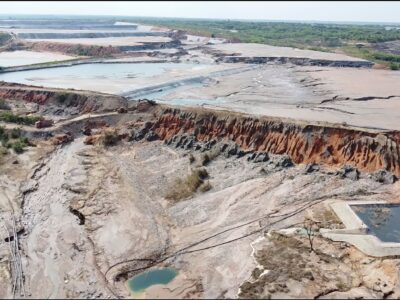The African Continental Free Trade Area (AfCFTA) initiative can be an important element of a climate adaptation strategy, thereby helping countries on the continent to reduce associated risks.
This is according to the International Monetary Fund (IMF) in its departmental paper on the continent, titled: “Trade Integration in Africa: Unleashing the Continent’s Potential in a Changing World” released on Friday.
While the relationship between trade and climate change is complex, the IMF stated that regional trade integration in Africa could be an important element of a climate adaptation strategy.
For example, it cited, by supporting diversification and growth, regional trade integration could boost countries’ resilience by reducing their overreliance on sectors that are at increasing risk of being adversely affected by climate change related natural disasters.
“Further, by facilitating the flow of goods across borders, regional trade integration would help countries diversify sources of climate-vulnerable products.
“Finally, regional trade integration could open up opportunities for increased regional trade related to climate-related infrastructure, services, and finance,” the Fund indicated.
Read more: Hichilema tasks engineers to find solution to perennial floods, other climate change issues
According to the IMF, rising average temperatures were expected to lower Gross Domestic Product (GDP) growth and exacerbate food insecurity in Africa.
Also, the rising frequency of natural disasters associated with climate change would be expected to disrupt economic activity at an increasing frequency on the continent.
In addition to their human toll, the rising frequency of natural disasters associated with climate change would also be expected to disrupt economic activity at an increasing frequency.
“Agriculture is likely to come under particular pressure, particularly as it remains mostly rain-fed in the continent. Climate change could also affect transportation costs in the future due to carbon pricing or use of more costly fuels.
“Over the medium-term, climate change mitigation policies could lower demand for fossil fuels and affect the prospects for countries that rely heavily on hydrocarbon exports,” according to the IMF.
The creation of the AfCFTA comes at a time when a changing global environment is presenting both new opportunities and new challenges for African countries.
These changes include climate change and its consequences, emerging risks of geopolitical fragmentation, ongoing technological progress and digitalisation, and Africa’s prospective demographic boom.
WARNING! All rights reserved. This material, and other digital content on this website, may not be reproduced, published, broadcast, rewritten or redistributed in whole or in part without prior express permission from ZAMBIA MONITOR!












Comments